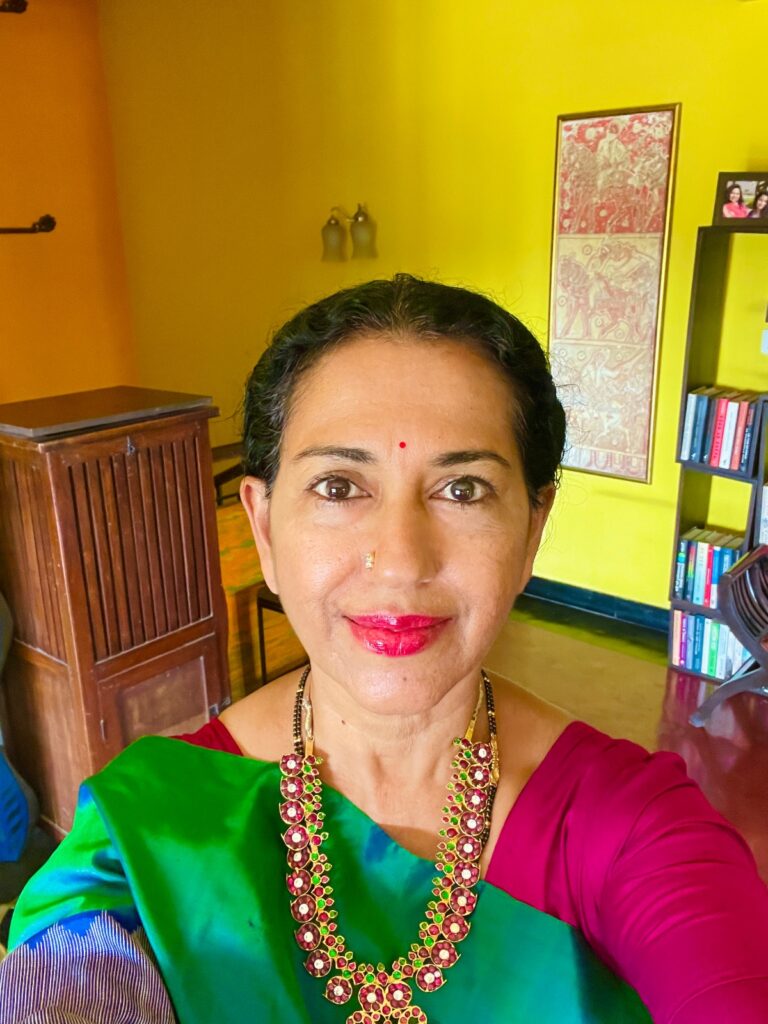About the Author :
Shoba Narayan is the author of five books. As a journalist and columnist, she writes about health, relationships, travel, food and culture for global publications, winning a James Beard award and Pulitzer Fellowship. She has taught and lectured at universities in India (IIM-B and IISc) and abroad. She is the host and anchor of Bird Podcast: about birds and nature. She enjoys wine, studies Jung and is a gadget geek. Her lifelong mission is to get fit without exercising and lose weight without dieting.

It was my daughter’s high school graduation. My husband and I threw a party to celebrate and a dozen 18-year-olds came home. They were bright and engaged, bubbling with energy and anxieties about college, career, and life.
Before the party, I had made up my mind about one thing: I would not be the adult around whom youthful conversation stopped.
You know the feeling. You walk into a room full of young people who are bantering and giggling. As you enter, conversation stops. They all stand up straighter and wear bland smiles. They compliment the food you are serving, answer politely, and laugh at your silly attempts at humour. Worst of all, you become your own Dad or Dadi, spouting inane niceties. “How are you, beta?” or “Sab thik-thaak?”
This time I wanted things to be different. I wanted to get to know these kids who had been traipsing through my house for years. I wanted to go beyond the advice-giving. I wanted to, in other words, stop being the wise elder and become someone they could actually talk to. How to do this in a way that was authentic to me and not patronising to them?
Well, first of all, I had to approach this from a place of humility.
I told myself, “These kids probably know a lot more than me about pretty much everything that is current.”
At first, this whole humility-thing was feigned. I was faking it just to feel-good. Look at me, I patted myself. How nice of me to be one with the youngsters.
By the end of the evening, my attitude had changed 180 degrees.
The second thing I did was to plan the conversation, much like I planned for a board meeting or an investment call with clients. What were the areas where I could have a meaningful conversation with 18-year-olds? Would mental health be an appropriate topic? Should I talk about game-ification or AI? Should I venture questions about dating online or would that be inappropriate? What about pets? Would they open up if I broached that topic? Would they be as triggered as my kids if I asked them about their future plans?
How to talk to teenagers 101. That was the class I was embarking on.
Finally, I decided to take a loose flexible approach that incorporated my planning but also allowed for spontaneous diversions.
Starting the conversation as it turned out, was not the hardest part. I know these are stereotypes but I discovered that boys opened up when you talked to them about sports or cricket, and gaming or comics. The problem was that I had to do a lot of research to ask even the most rudimentary question about gaming or the latest superhero. I had no idea about these worlds that they inhabited so fully. With girls, and yes I know it is a stereotype, I started with questions about online fashion or social media.
Once you began with these ‘safe’ topics, it was easy to steer the conversation into deeper issues. Mental health was a good one because I was interested in this subject and I genuinely wanted to know about this. Even here, specific questions helped.
Early on, I tried the question: “So what do you all think about mental health?” but found that it was too general and evinced few replies. Instead, referencing a popular TV show that they watched and asking the question helped.
“Did you think the Ted Lasso portrayal of the panic attack was real?” gave me insights into how teenagers process panic attacks.
“Did you think that woman was right in leaving her husband for a slap he gave in that movie Thappad?” got a whole range of opinions about how young men and women thought about relationships and power.
The hardest part, as it turned on, was not starting the conversation. The hardest part was stopping myself from interrupting them with my own viewpoints. More than once, I had to stop myself from saying things that invariably began with the sentence, “When I was your age….”
That sentence is the beginning of advice-giving and the death of conversation.
So just stop and listen with an open mind when you encounter 16, 17, or 18-year-olds.
You will, like me, be gobsmacked by their intellect and insights.






